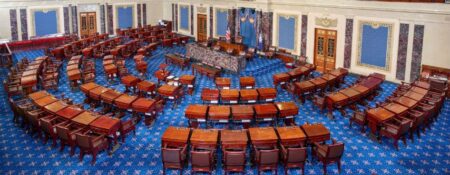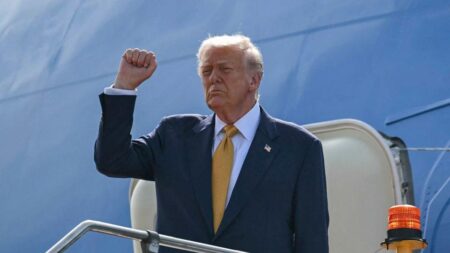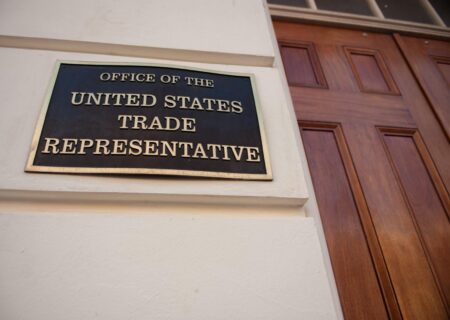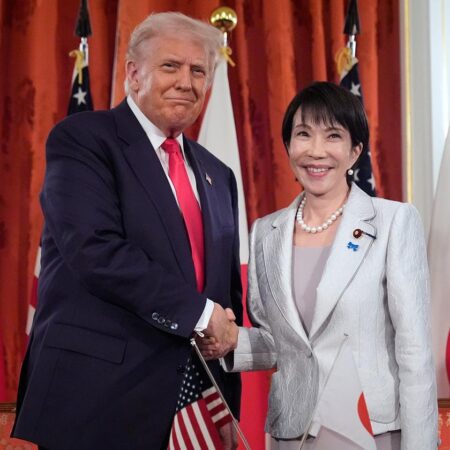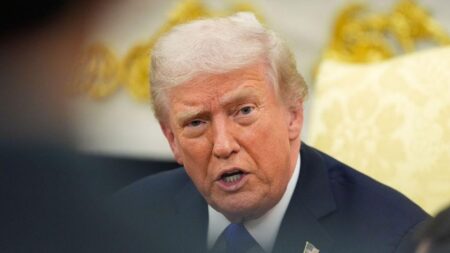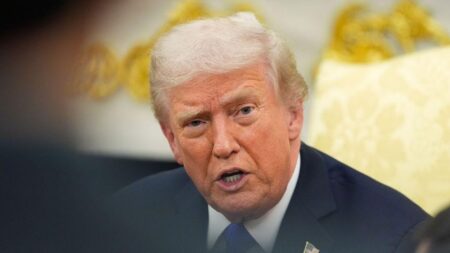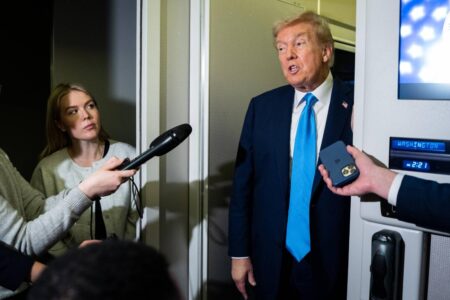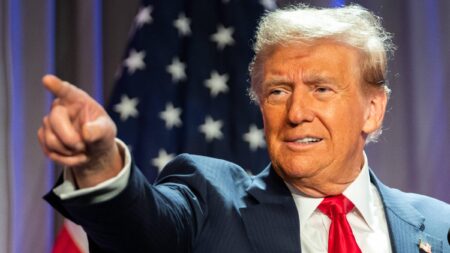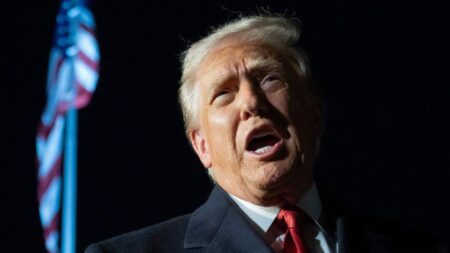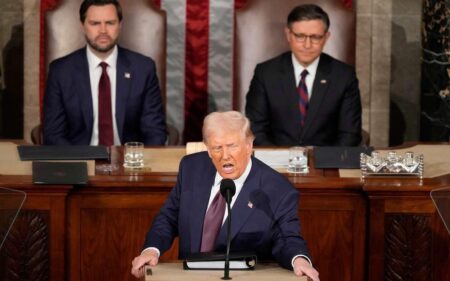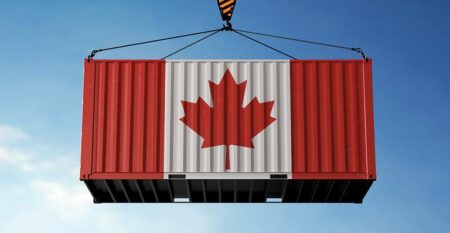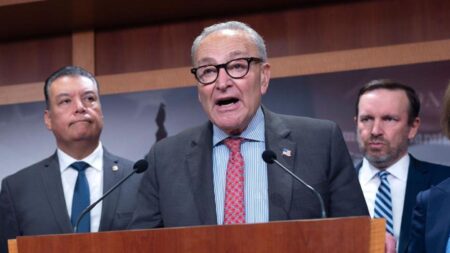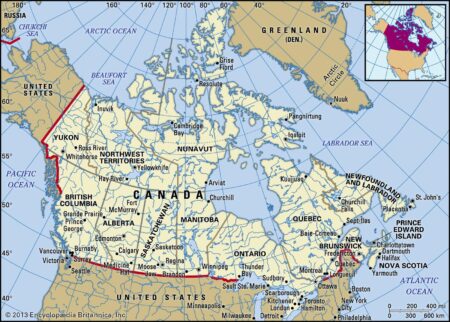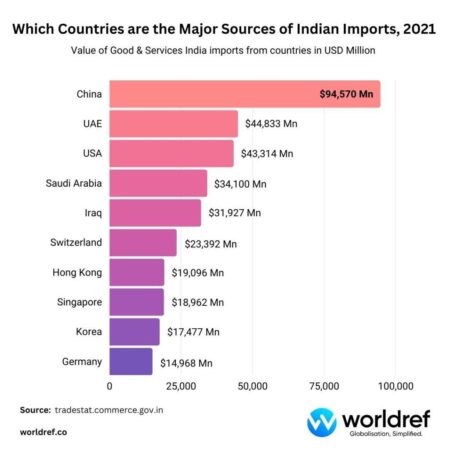Live updates: In a groundbreaking decision to ease trade tensions, the Senate has voted to lift the tariffs imposed by the Trump administration on Canadian goods. Stay tuned for more updates!
Browsing: trade policy
Former President Trump is sparking intense controversy by pushing for the import of Argentine beef, a move that many say undermines hardworking American ranchers. This bold stance has ignited a fierce backlash, raising serious concerns about the future of domestic livestock support and trade policies
The U.S. Trade Representative has launched an investigation into China’s very first trade deal from the Trump administration, igniting concerns from the Alliance for American Manufacturing about its potential impact on American industries at home
The Senate has enthusiastically approved a bipartisan resolution to eliminate tariffs on Brazilian goods, paving the way for stronger U.S.-Brazil trade ties and enhanced economic collaboration. This landmark decision represents a major leap forward in reducing trade barriers
During a visit aboard a US aircraft carrier in Japan, former President Donald Trump passionately applauded American troops and confidently stood his ground defending his tariff policies, highlighting how they have strengthened national security and driven impressive economic growth
Higher tariffs on Canadian lumber aim to protect the US forestry industry, but experts caution they may fall short of driving long-term investments due to market fluctuations and ongoing supply chain challenges. Achieving true sustainable growth requires more than just imposing tariffs
Colby Cosh explores Canada’s surprising resurgence of admiration for Ronald Reagan and free trade, uncovering shifting political attitudes and a renewed surge of economic optimism in the National Post’s latest analysis
In a surprising turn of events, President Trump has sharply increased tariffs on Canadian goods following a provocative ad by Ron Reagan. According to the BBC, this bold move escalates the already fierce trade tensions between the US and Canada
Former President Donald Trump fiercely criticized a Canadian anti-tariff ad, claiming it distorts Ronald Reagan’s iconic words. CNBC invites viewers to compare the original quotes with the ad’s version and make up their own minds
Industry leaders have blasted the new U.S. tariffs as “unfortunate” and “uncalled for,” warning they could disrupt supply chains and send costs soaring. This move has sparked growing concerns over escalating trade tensions, reports CTV News
Former President Donald Trump has imposed a 10% tariff on Canadian goods, reigniting a decades-old trade conflict that traces back to the Reagan era. This daring action escalates tensions between the U.S. and Canada, shaking the foundation of their vital trade partnership
Former President Trump has sharply increased tariffs on Canadian goods after a Reagan ad aired during the World Series. This daring action escalates trade tensions between the U.S. and Canada, igniting a fierce economic showdown
The Trump administration has launched an in-depth investigation into China’s commitment to the 2020 trade deal, rigorously scrutinizing whether Beijing has genuinely upheld its promises amid ongoing trade tensions, Al Jazeera reports
A GOP senator claims that Canada’s trade with the US has “always been lopsided,” igniting renewed criticism over perceived imbalances. These remarks intensify the ongoing debates about North American trade relations
Senate Majority Leader Chuck Schumer fiercely criticized former President Trump’s decision to halt trade talks with Canada, calling it “madness” that harms U.S. interests. He urged an immediate restart of the negotiations to protect America’s future
Canada is aiming high with an exciting goal: to double its non-US exports within the next decade, Prime Minister Carney announced. This bold plan focuses on forging new trade partnerships across the globe to drive economic growth and reduce reliance on the US market
Former President Trump has abruptly slammed the brakes on trade talks with Canada, fiercely denouncing a controversial ad linking him to Ronald Reagan as “fake.” This surprising move intensifies tensions at a crucial moment in the bilateral negotiations
In Episode 178 of The AAF Exchange, join us for a captivating deep dive into economic bifurcation, Argentina’s urgent challenges, the shifting landscape of rare earth markets, and the powerful impact of tariffs on global trade. Discover exclusive insights from The American Action Forum that reveal key policy implications shaping our world
The US is gearing up to slash tariffs on Indian imports to 15%-16%, marking a bold move to ease trade tensions and turbocharge bilateral commerce, according to a recent India Today report. This strategic decision aims to deepen economic ties and ignite stronger cooperation between the two nations
Republicans break their silence with rare criticism of Trump after his bold call to import red meat, sparking a fiery debate within the party. This surprising proposal raises serious concerns about trade policies and the future of domestic agriculture, exposing deepening divisions in the GOP

